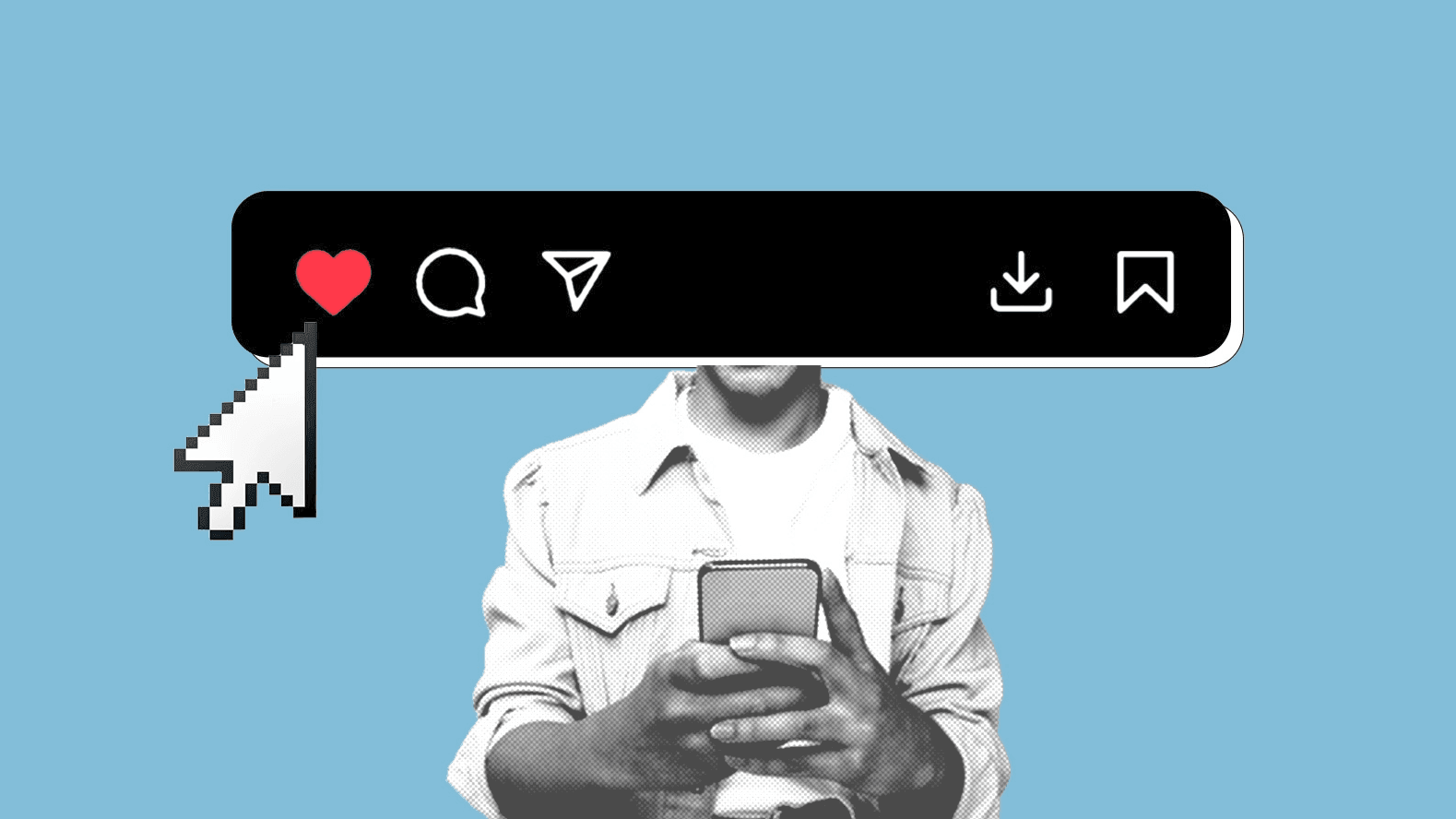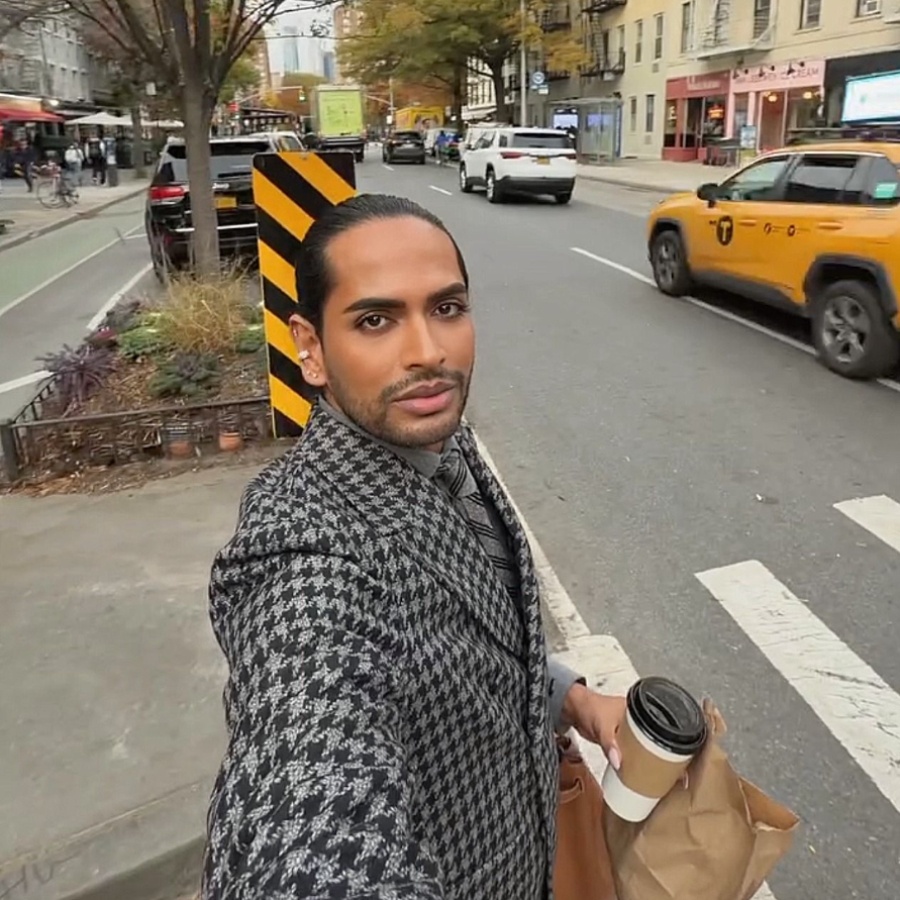“Dog videos, dog videos, dog videos,” my friend, convinced Zuckerberg is listening, mutters into his phone to manipulate his Instagram algorithm. “Sounds like you have become an algorithm yourself,” I chuckle at his robotic chant. For the record, he’s perfectly human—thank you very much. “I feel less like a person and more like a profile,” he confesses, though.
Like the process of curating a profile, a meticulous mental calculus precedes Gen-Z’s simplest actions on social media. For this digital native generation, something like double-tapping a post isn’t merely an expression of enjoyment or appreciation—it’s a carefully weighed act. A single like may subtly communicate political leanings, sexual identity, or personality traits. In a cancel-culture-ridden Gen-Z world that runs on perception, this act is analysed, scrutinised, and overthought.
“I usually avoid liking posts. I save them instead,” shares Neha Hegde, a 21-year-old community moderator from Bengaluru. She finds giving away too much of herself online discomforting. “People don’t hesitate to say outright mean and abusive things, and that does take a toll on one’s mental health.” The internet is at once, the most public yet concealed place. And Gen-Z, who pioneered mental health conversations online, now find themselves wrestling with the psychological toll of being seen on the very platforms they employed to promote authentic expression.
Recently, actor Chunky Panday became the subject of mocking conversations when he was spotted liking a meme trolling his daughter Ananya Panday’s alleged relationship. For Simran Thapliyal, a freelance journalist based in London, this is the kind of cautionary tale that keeps her from interacting with content on social media. “I almost never do it,” she says. “You don’t know who’s going to see your comment and in what context it’s seen.” There is this level of hyper-awareness about the judgment or perception that somebody else will have of you, she adds, acknowledging that it’s a two-way street. She recalls noticing that an old acquaintance had liked multiple posts promoting a controversial influencer. “I used to admire their judgment, but now I question whether their taste in people aligns with mine.”
The contradiction for the generation is straddling the line between not being seen in the wrong context and not being seen at all. People still want to be perceived as cool and interesting, hence the apparent popularity of paid services like Get Your Flex. A small payment can get customers tagged on stories from “real” accounts, which they can repost to make it look like they were with friends at a social event of their choice. Options include late night drives and dinner dates to the buzziest concert in town.
This acute awareness of public scrutiny coupled with the self-pressure of digital perfection, perhaps, is why platforms like Reddit, where anonymity is preserved, have become popular spaces for unfiltered discussions among the Gen-Z.
For Varkha Chulani, a clinical psychologist and associate fellow at Albert Ellis Institute, these digital dynamics boil down to a simple human truth. “Most people want to be thought well of,” she notes. This behaviour is not isolated and translates to other aspects of life as well. Many are consciously curating their public identities, not just on social media but in real-world settings, too. “In personal relationships, for instance, there’s a heightened sensitivity to how their actions might be interpreted, leading to a tendency to overthink everything from casual conversations to group dynamics. In professional settings, everyone wants to brand themselves as a thought leader, a creative, or a professional. This can create pressure to maintain a polished identity, sometimes at the cost of authenticity.”
The algorithm adds another layer of complexity. Platforms like Instagram have turned content consumption into an extension of identity. Maintaining an “aesthetic” explore page and a clean feed (or one that’s primarily dog videos) is another assignment Gen-Zers have tasked themselves with. Hegde reasons that she doesn’t want to feel pressured to engage with the kind of content she doesn’t appreciate. “I have certain nerdy interests which change from time to time, and I like it when my explore page indulges my interests.”
“I even go as far as to strike ‘not interested’ on certain posts to ‘cleanse’ my feed,” Thapliyal affirms. “I like to watch Kathak videos or film clips as they interest me, but I somehow always end up with just girly content about make-up and fashion.” In an ideal world, she wishes for a social media app “where you could put ‘this is what I want to watch’ and be shown only that—instead of being a slave to the algorithm.”
Cultivating a healthier relationship with social media is a real issue that Gen-Z is toiling with, but, “I would actually urge people to do the opposite,” says Chulani. Instead of adapting to an unhealthy digital environment, she says, young people should focus on authentic, in-person connections. “Why develop a healthier relationship with something which is leading to more emotional distress?” she challenges. Rather, one must focus on developing the ability “to feel less anxious and concentrate more towards in-flesh engagements.”
Ultimately, Gen-Z’s struggle with their digital footprints reflects a broader challenge: how to preserve authenticity in a world where every action is meticulously analysed, judged, and permanently recorded.






